- Home
- Maisey Yates
Confessions from the Quilting Circle Page 4
Confessions from the Quilting Circle Read online
Page 4
Fortunately, her fiddling, as her dad persisted in calling it—for the sole purpose of irritating her—had kept her too busy to get into classic rebellions.
“Good. I am...” She took a breath. She’d been avoiding saying this out loud. Now she wondered if she should. If she was making it a big, superstitious thing when it really didn’t have to be. “There’s a principal spot open. I’ve been first chair now for a couple of years, and... I think this is it. I think this is... I think I’m going to get it.”
She’d said it now. It was there. Out in the universe.
“That’s... That’s great news,” he said. “Why didn’t you tell us earlier?”
“Because I’m nervous about it. I might not get it.” But even as she said that, her stomach twisted, and the echo inside of her was fierce and strong.
That was unacceptable. She had to get it. She had to. There wasn’t another choice. She hadn’t started this journey and kept on it so doggedly to not get this spot. She’d been with the Boston Symphony for over ten years, and she had more than proven her worth.
This was her dream. Her practical dream. To be the lead position in the orchestra.
She knew it wasn’t common for a violinist to ascend to the heights of world fame as a soloist, and sure, she’d held some of that hope in her heart. Everyone had those kinds of dreams. But this was possible. More than possible, it was likely.
It was what she’d been working toward since she’d left Bear Creek.
And the timing for her to get away for a while as the board reviewed everything was actually great.
“You’ll get it,” her dad said. “You know you will.”
Unfailing confidence in her. He’d always had that. Pressure accompanied the warmth in her chest and she found it hard to breathe around it.
“You’ve worked for it,” her mom said.
“You’ve always been special,” Dad said.
Special.
Her mom had always worried her dreams weren’t practical. But her dad had always said that. Special.
But she’d believed it. She’d known it, down in her bones. That she wasn’t meant for this place. That she was bigger than this house, this town.
This had been her obsession, her focus, for nearly thirty years. And anything other than the top was a failure.
And Hannah could not fail.
3
April 12th, 1944
I know you cannot control when you return. And I know you will come back to me. But it will be impossible to hide this secret forever, and I fear what it will mean for us, and for our baby, if the world knows he came into being outside of marriage. Your parents hate me already. What will they do if they find out about this?
Love, Dot
Lark
“Where is Avery?”
“She has school run.” Lark looked around the attic, mentally formulating a plan of attack.
“Isn’t Peyton old enough to drive?” Hannah asked.
“Almost at least. But I think Avery likes doing it.”
Hannah frowned. “I think that’s something I would not enjoy.”
Lark shifted. “No. Probably not.”
She kept her eyes on Hannah as Hannah scanned the room and she could almost see the mental to-do list her much more organized sister was building as she took a quick inventory of everything stacked in front of them. “This is a lot of stuff.”
They’d gotten a massive furniture delivery today, and Lark couldn’t even be annoyed because the rich velvet chaise, the beautiful four poster beds and plush sectional were exactly what Lark would have chosen if she’d been consulted.
It was always weird to her, when the three of them had taste that crossed over.
“I was thinking about it last night,” she said, quickly. “If we start taking things over to The Miner’s House I can sort through it during slow times. I know Gram’s bedroom is still completely filled with her things. I peeked in there last night but I couldn’t quite bear going in.”
Hannah looked down. “Yeah, I...don’t think I’m quite ready for that.” She frowned. “Do you feel guilty? About how little we visited?”
“I always at least came for Christmas and the Fourth.”
“Better than me. I was down to Christmas, and only after the holiday concert series ended in Boston.”
“We both saw her last in the same visit,” Lark said. “Remember, she said your hair was looking too ordinary.”
Hannah grabbed hold of the end of her ruby hair. “Yep. Too dull for Gram.” Sadness lowered her features. “She wanted me to sit and needlepoint with her and I didn’t want to.”
“Well, you’re here now. You’re moving over here tonight, right?”
“Yes.”
“We can have a slumber party.”
“Are you staying here for the whole renovation?” Hannah asked, her brow pleating.
“I was planning on it.”
“I’m not sure if it’s going to be hugely livable.”
“I’m very comfortable with camping, Hannah.”
Hannah’s lips pulled down into a frown. “You think you’re going to walk to the creek and bathe?”
“Sure. Why not? We used to skinny dip in the creek all the time.” At least they had until Hannah had gotten too busy to hang out with Lark anymore.
Until she’d gotten consumed by her music, and then there had been Josh—until Hannah had cut even him out. And between him and music there hadn’t been time for her to devote a breath to anyone else. Let alone an afternoon with her sister.
Hannah laughed. “True. I remember being scared boys were spying on us. Then a couple years later I was a lot more worried they weren’t spying on us.”
“Yeah I think the boys were mostly ignoring us, to be honest.”
One boy in particular. But thinking about him was like a series of chain reactions, and Lark didn’t want to step down that path. So she didn’t even put one foot on it.
“In a month or so I’ll work on finding a house to rent here,” she said. “And until then I guess we’re roommates.”
“Oh wow,” Hannah said, looking a bit stricken. “It’s like being kids again.”
“Except we have our own rooms. This place is plenty big.”
“You think that your craft business is going to make enough money for you to rent somewhere else?” Hannah asked.
“I have money,” Lark said. “Don’t worry about me.”
Her sister paused. “You have that kind of money?”
“I had some successful projects,” she said, feeling a little defensive and hating to be put in that position.
She’d decided a long time ago that it was powerful to be fine, thank you very much, and have no one else be able to quite pin her down.
But now that she was looking at proximity with her sister for some time, it was annoying.
“You never say,” Hannah said. “I keep everyone posted on what’s happening with the orchestra. But why are you coming back here?” Hannah’s tone dripped with disdain. “Why are you... Changing everything?”
Lark couldn’t seem to shift the deep sadness that welled up inside of her. Six months ago she’d been hit with an overwhelming realization that what she was doing wasn’t what she loved. Not anymore.
That in some ways it was keeping her broken, not healing her.
And once she had realized those things, it had felt like a slog to finish the project she was contracted for. And she...she was not a precious artist. She was a commercial artist.
She enjoyed making art that she could be paid for, art that met her admittedly meager needs. She could enjoy art in any variety, and enjoyed the challenge of adapting to different styles, and different directives for different projects. But once it was gone, it was gone, and once the sadness had taken hold it was too much like old memories.<
br />
And every time she picked up a pen she felt like she was sitting in them. The entire point of staying away from Bear Creek had been outrunning bad memories. But it wasn’t working anymore. They’d been ankle deep for years, and now she felt them creeping up, higher and higher and she worried soon she’d drown in them.
So when Addie died, and had left her this place, she had figured...might as well wade right in.
“You know me. I like to...follow my feet and see where they lead me. I was itching for something new.”
“Just like that?”
“It’s not really like being first chair in a major symphony orchestra,” Lark said, touching her sister’s hand. “I get contracts from a lot of different companies and publishers. I can easily step back in.”
“I don’t know how you do that. Just... Move. Change things. Assuming that you won’t lose any ground.”
“I don’t know that I was ever trying to gain ground,” Lark said.
Hannah frowned. “That’s what I’m always trying to do.”
“I guess that’s the difference. You’re climbing a ladder, and I’m just...driving on the highway. Nowhere so far has been better, just different.”
It tasted a little disingenuous on her tongue. And she had to wonder if it was more accurate to say she was running down the highway. Leaving her past behind.
She just...as annoying as it was for them to underestimate her the alternative was emotional honesty and Lark had some things to work out in herself before she got there.
“Okay, do you want to help me box this stuff up?”
“Sure.”
The stuff was already boxed, technically, but it wasn’t exactly transport ready. They both knelt down on the rough, hardwood floor and opened up boxes, sifting through the contents. Silks, yarns, roving and gingham. Thread, wire and twine. Beads, pliers of all varieties, strips of leather and metal stamping kits.
It was so similar to the craft kits she’d started assembling right after Gram’s funeral. When the dream of the Craft Café was the only thing that kept her from sinking into full-on grief. Seeing it now gave her a renewed sense of purpose.
They shifted to another section and began unearthing scarves, half-finished sweaters that were on cables. There was even one that was entirely finished, just not cast off, still on the needles.
Lark touched the nearly finished sweater and chuckled. “I’ve never related to Gram more.”
“I feel lied to,” Hannah said. “She was always such a stickler to me.”
“She probably knew it was what you needed to hear. If you would have known that knitting would be a haphazard disaster of unfinished projects you would never have wanted to do it.”
Hannah looked surprised. “That is true. I really don’t like things being left undone.”
“Neither do I,” Lark said softly, touching a particularly beautiful, half-made pink cashmere sweater. “I seem to do it often enough, though.”
She hadn’t always. These things, arts and crafts, quilting and knitting...they’d done them all together once upon a time. Because no matter how different they all were, no matter how busy, they’d had time for Gram.
And she’d set them all down with a project and watch as their strife turned into teamwork. Turned into a kind of shared joy and purpose that they never found together outside of sewing or knitting.
Lark moved over to the next stack of boxes. “Oh,” she said. “It’s fabric.”
Fabric that was neatly folded into bins, with handwritten labels affixed neatly to the top of them. “‘Parlor curtains,’” she read. “‘Party dress.’ This is the fabric that she was going to used to make the memory quilt.”
“I haven’t... I haven’t gone near anything like this in years. Not since I left home.”
“Really? Why no—”
“He gets done at 5:30.” Avery’s voice filtered up the stairs. “He can wait around for like ten minutes. No I...you know, I’ll call Karen.” She pushed her way into the attic, her phone still pressed up against her ear. “No. Nonono. it’s fine. It’s fine. It’s just that I told my sisters I would help sort through things tonight. I didn’t want to have to...” The sentence stopped sharp on a harsh breath. “Dinner will be ready. It’s in the Crock-Pot.” She closed her eyes. “It won’t be Crock-Pot dinner tomorrow night. I promise. Don’t worry about it.” She paused. “I love you too.” She hung up, and blinked three times as if to try and forcibly brighten her expression. “Scheduling drama.”
Lark wondered if that dismissal, airy and light like she was brushing a cobweb away from in front of her, worked on her friends. She might not have spent a ton of time with Avery in the last ten years, but she’d grown up with her sister.
And she could tell the conversation was bothering her deeper than she was admitting. She wasn’t used to seeing tension between Avery and David, but she usually saw them at holidays, when David was sitting with her dad or the kids with a beer in his hand. Relaxed. She wasn’t part of their real lives, with schedules and work and things.
“Your husband doesn’t want to pick up his son?” Hannah asked, arch and judgmental in a way Lark could never pull off.
That had always been Hannah’s way. She wasn’t mean, but she didn’t go out of her way to be...gentle either. Hannah’s opinions often fell like an ax and God help you if your neck happened to be under them.
Lark had spent most of their childhood mortally wounded by Hannah’s sharp tongue.
She could remember one fight they’d had about Hannah’s incessant, obsessive practicing.
I’m not scribbling on a piece of paper and calling it art, Lark. This is a discipline, not a kindergarten project.
And all her defenses had gotten jumbled up inside of her. About how art was a discipline, and you did have to learn it. About how there was real school for it. Real work. Because her tears had clogged up her throat and she hadn’t been able to say a thing.
That was when she’d do something like hide Hannah’s rosin or put a caterpillar in her underwear drawer.
Actions spoke louder than words, after all.
And because actions spoke louder, she’d just worked harder on her art—in between bouts of petty vengeance. She’d ended up getting a scholarship, same as Hannah. But she’d never felt like her sister had really...understood.
And all of her big attempts at being heard, being seen...being something. They hadn’t worked out well.
“He’s a doctor,” Avery said. “He’s busy. It’s not like he’s been out golfing all day. He’s been in surgery. He has some things to finish up. Paperwork.”
“Oh, right,” Hannah said. “You know, your time is important too.”
“I’m not...” Avery waved away more imaginary cobwebs. “In people’s spines.”
“If he’s in someone’s spine, I think there’s a problem,” Hannah said.
“He should be more considerate of your time,” Lark said.
Avery’s expression honed itself into a finely sharpened point, and she turned it straight onto Lark. Hannah had likely gotten away with being snarky, because Hannah was always snarky.
It reminded her so much of their mother that it shocked Lark into silence for a moment. “He’s a doctor,” she said again. “The kind of pressure he’s under is a lot more intense than...”
“Raising his children?” Hannah asked.
“I thought you liked David,” Avery said, frowning at Hannah.
“I do,” Hannah said. “But I don’t like this. I don’t like you just dismissing your whole life because David is an important doctor.”
“I’m not dismissing my whole life. I need some extra help picking my son up. That’s all. And if I didn’t want to be here so badly, I wouldn’t need help.”
“You gonna text Karen?” Lark asked.
“Yes,” Avery said, stabbing at her phone,
then staring at it for about thirty seconds before stabbing at it again. “There. Handled. Okay, where are we at up here?”
“I just found the fabric that Gram was going to use to make the quilt,” Lark said.
“That sounds like more fun than discussing my schedule.”
“I’m thirsty,” Hannah said.
“I brought wine.”
“Nothing stronger?” Hannah asked.
“Sorry,” Avery said. “I left my flask in the other minivan.”
“You joke, but probably half of the moms in that hellscape you call a pickup line have gin in their water bottles.”
“Oh, more than half,” Avery said.
Hannah lifted a shoulder. “I find it interesting that so many women fade into a life that requires they dull their senses for half of it.”
“Fade into a life?” Avery asked. “Is that what you think I did?”
“No,” Hannah said, sounding defensive but not totally convincing.
Avery’s expression was flat, unamused.
“I made the choice to come back,” Avery said. “There was no fading anywhere.”
The growing tension between her sisters built up a knot in Lark’s chest. Hannah and Avery were both blunt, and would go right in for a fight without even pausing to think about it. They also got over it when it was done. They always had.
And of course neither of them realized that Lark had wanted, more than anything, to fade into the kind of life Avery had. If it were that simple, she’d have done it.
“I’ll have wine,” Lark said.
She grabbed a glass out of the bag and held it up to her sister. Hannah, meanwhile, dug in the corner for a blanket, and then looked up impishly.
“Remember how we used to use this clothesline?” She flipped her finger over the top of a cord that hung stretched across one section of the room.
“Yes,” Lark said.
She slung the sheet over the top of the line, then took a stack of boxes and used it to anchor four corners of the sheet.

 Last Chance Rebel (Copper Ridge #6)
Last Chance Rebel (Copper Ridge #6)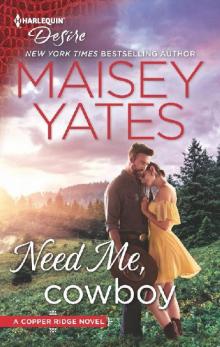 Need Me, Cowboy (Copper Ridge Book 2653)
Need Me, Cowboy (Copper Ridge Book 2653) The Hero of Hope Springs
The Hero of Hope Springs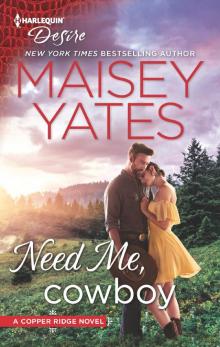 Need Me, Cowboy
Need Me, Cowboy Rancher's Wild Secret & Hold Me, Cowboy (Gold Valley Vineyards Book 1)
Rancher's Wild Secret & Hold Me, Cowboy (Gold Valley Vineyards Book 1) One Night Charmer: Hometown Heartbreaker Bonus (Copper Ridge Novels)
One Night Charmer: Hometown Heartbreaker Bonus (Copper Ridge Novels) Claiming the Rancher's Heir
Claiming the Rancher's Heir Cowboy Christmas Redemption
Cowboy Christmas Redemption Crowning His Convenient Princess (Once Upon A Seduction... Book 4)
Crowning His Convenient Princess (Once Upon A Seduction... Book 4) His Majesty's Forbidden Temptation (Mills & Boon Modern)
His Majesty's Forbidden Temptation (Mills & Boon Modern) Solid Gold Cowboy
Solid Gold Cowboy His Majesty's Forbidden Temptation
His Majesty's Forbidden Temptation Crowning His Convenient Princess
Crowning His Convenient Princess The Queen's Baby Scandal
The Queen's Baby Scandal Harlequin Desire January 2021--Box Set 1 of 2
Harlequin Desire January 2021--Box Set 1 of 2 Lone Wolf Cowboy
Lone Wolf Cowboy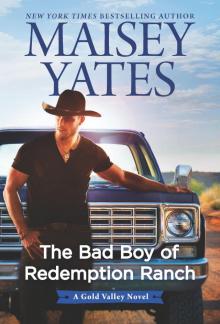 The Bad Boy of Redemption Ranch
The Bad Boy of Redemption Ranch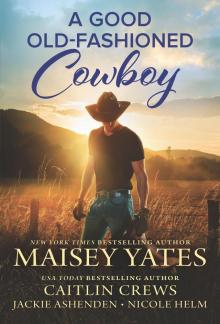 A Good Old-Fashioned Cowboy
A Good Old-Fashioned Cowboy A Bride for the Lost King
A Bride for the Lost King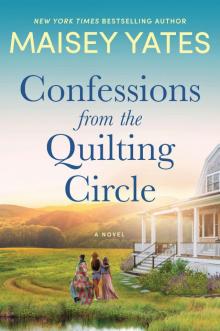 Confessions from the Quilting Circle
Confessions from the Quilting Circle Unbroken Cowboy
Unbroken Cowboy Rancher's Christmas Storm--A Western snowbound romance
Rancher's Christmas Storm--A Western snowbound romance Cowboy to the Core
Cowboy to the Core His Pregnant Princess
His Pregnant Princess Forged in the Desert Heat
Forged in the Desert Heat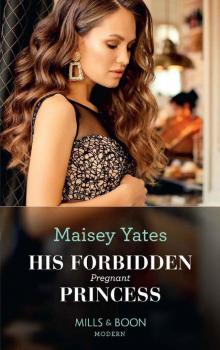 His Forbidden Pregnant Princess (Mills & Boon Modern) (Conveniently Wed!, Book 21)
His Forbidden Pregnant Princess (Mills & Boon Modern) (Conveniently Wed!, Book 21)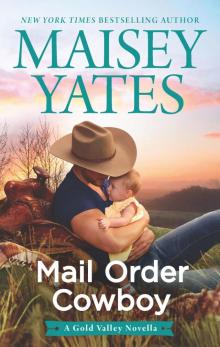 Mail Order Cowboy
Mail Order Cowboy Last Chance Rebel
Last Chance Rebel The Rancher's Wager
The Rancher's Wager Secrets from a Happy Marriage
Secrets from a Happy Marriage The Last Christmas Cowboy
The Last Christmas Cowboy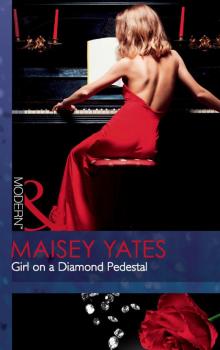 Girl on a Diamond Pedestal
Girl on a Diamond Pedestal Her Little White Lie
Her Little White Lie The Couple who Fooled the World
The Couple who Fooled the World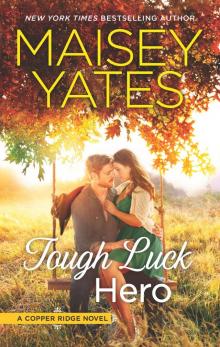 Tough Luck Hero
Tough Luck Hero His Forbidden Pregnant Princess
His Forbidden Pregnant Princess TO DEFY A SHEIKH
TO DEFY A SHEIKH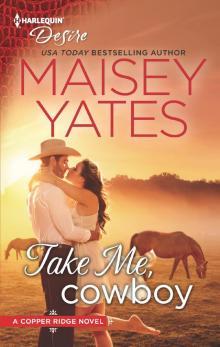 Take Me, Cowboy
Take Me, Cowboy The Inherited Bride
The Inherited Bride Marriage Made on Paper
Marriage Made on Paper His Virgin Acquisition
His Virgin Acquisition One Night to Risk It All
One Night to Risk It All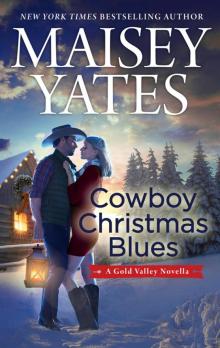 Cowboy Christmas Blues
Cowboy Christmas Blues The Billionaire's Intern: Logan Black (Forbidden Book 1)
The Billionaire's Intern: Logan Black (Forbidden Book 1) Strip You Bare
Strip You Bare Untouched
Untouched The Petrov Proposal
The Petrov Proposal Sheikh's Desert Duty
Sheikh's Desert Duty Unbuttoned
Unbuttoned His Ring Is Not Enough
His Ring Is Not Enough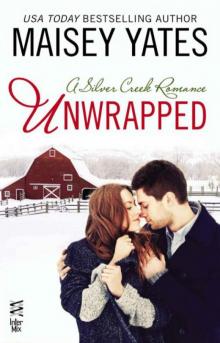 Unwrapped
Unwrapped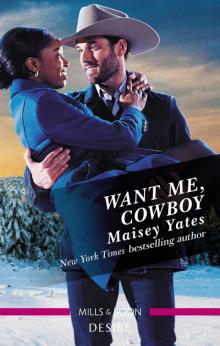 Want Me, Cowboy
Want Me, Cowboy The Italian's Pregnant Prisoner
The Italian's Pregnant Prisoner A Royal World Apart
A Royal World Apart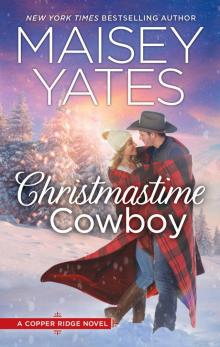 Christmastime Cowboy
Christmastime Cowboy Pretender to the Throne
Pretender to the Throne Rekindled
Rekindled The Queen's New Year Secret
The Queen's New Year Secret Down Home Cowboy
Down Home Cowboy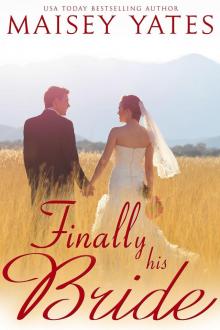 Finally His Bride (Montana Born Brides Series Book 4)
Finally His Bride (Montana Born Brides Series Book 4)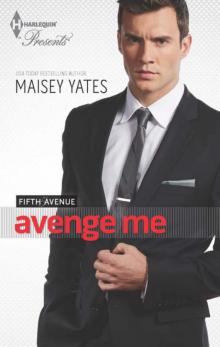 Avenge Me
Avenge Me Crazy, Stupid Sex
Crazy, Stupid Sex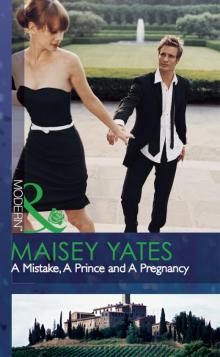 A Mistake, A Prince and A Pregnancy
A Mistake, A Prince and A Pregnancy Hometown Heartbreaker
Hometown Heartbreaker A Hunger for the Forbidden
A Hunger for the Forbidden Brokedown Cowboy
Brokedown Cowboy Princess from the Shadows Maisey Yates
Princess from the Shadows Maisey Yates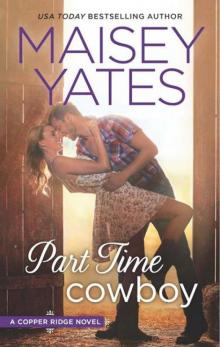 Part Time Cowboy (Copper Ridge Book 1)
Part Time Cowboy (Copper Ridge Book 1)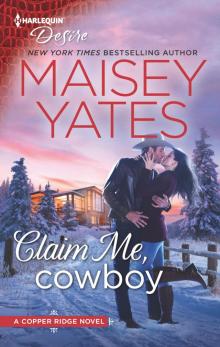 Claim Me, Cowboy
Claim Me, Cowboy Wild Ride Cowboy
Wild Ride Cowboy The Rancher's Baby
The Rancher's Baby The Prince's Captive Virgin
The Prince's Captive Virgin Seduce Me, Cowboy (Mills & Boon Desire) (Copper Ridge)
Seduce Me, Cowboy (Mills & Boon Desire) (Copper Ridge) Untamed Cowboy
Untamed Cowboy Smooth-Talking Cowboy
Smooth-Talking Cowboy The Billionaire's Marriage Deal
The Billionaire's Marriage Deal The Life She Left Behind
The Life She Left Behind The Greek's Nine-Month Redemption
The Greek's Nine-Month Redemption Carides's Forgotten Wife
Carides's Forgotten Wife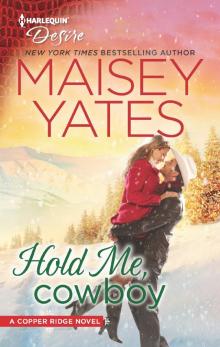 Hold Me, Cowboy
Hold Me, Cowboy The Spaniard's Pregnant Bride
The Spaniard's Pregnant Bride Unexpected (A Silver Creek Romance)
Unexpected (A Silver Creek Romance) The Prince and the PA
The Prince and the PA A Christmas Vow of Seduction
A Christmas Vow of Seduction The Last Di Sione Claims His Prize
The Last Di Sione Claims His Prize Snowed in with the Cowboy
Snowed in with the Cowboy Fifth Avenue Box Set: Take MeAvenge MeScandalize MeExpose Me
Fifth Avenue Box Set: Take MeAvenge MeScandalize MeExpose Me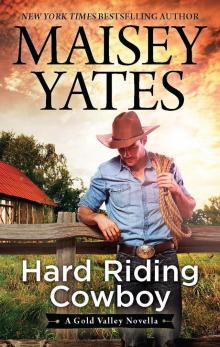 Hard Riding Cowboy
Hard Riding Cowboy Bound to the Warrior King
Bound to the Warrior King Heir to a Dark Inheritance
Heir to a Dark Inheritance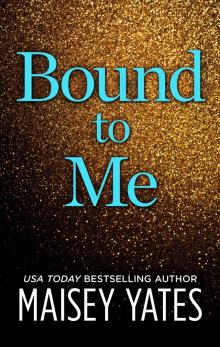 Bound to Me
Bound to Me At His Majesty's Request
At His Majesty's Request The Italian's Pregnant Virgin
The Italian's Pregnant Virgin Slow Burn Cowboy
Slow Burn Cowboy A Game of Vows
A Game of Vows Married for Amari's Heir
Married for Amari's Heir The Argentine's Price
The Argentine's Price Bad News Cowboy
Bad News Cowboy Breaking All Her Rules
Breaking All Her Rules A Copper Ridge Christmas
A Copper Ridge Christmas Hajar's Hidden Legacy
Hajar's Hidden Legacy One Night Charmer
One Night Charmer One Night in Paradise
One Night in Paradise His Diamond of Convenience
His Diamond of Convenience